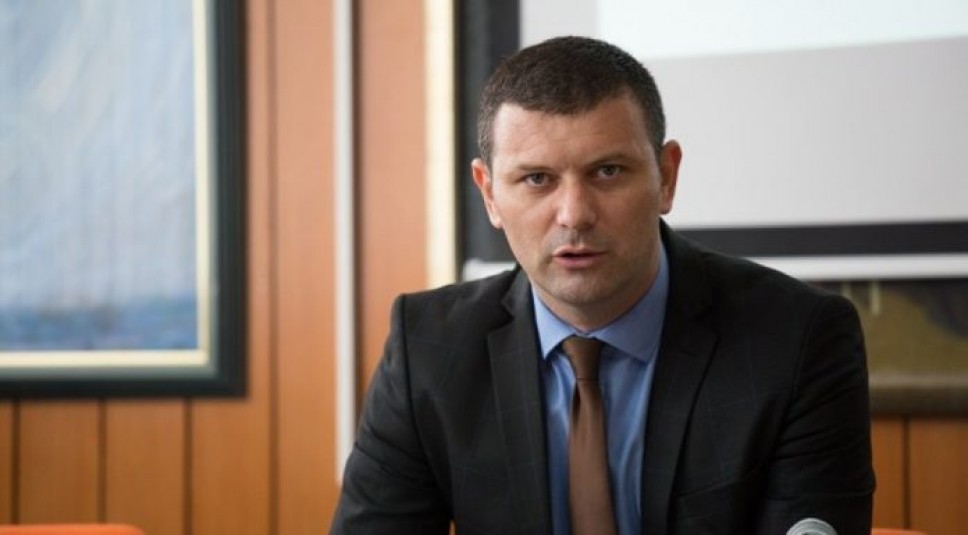Role of an Intellectual is to Recognize Ideas of Fascism and Clearly Warn about Them

The thirteenth of July is, beyond a doubt, not only one of the most important historical moments of Montenegro, but also a universal symbol that unites the most important values of modern Montenegro, according to historian Adnan Prekić,PhD, Teaching Associate at the Faculty of Philosophy, University of Montenegro.
We talked with him for the UMNE website about the significance of this date, global trends in terms of fascism and anti-fascism and the task of today's historians, as well as the activities of historians at the Faculty of Philosophy of the University of Montenegro.
UMNE: What values should the celebration of July 13 remind us of today?
PREKIĆ: Through the memory of the end of the Berlin Congress, this date is also the cornerstone of Montenegrin statehood, a reminder that on July 13, 1878, Montenegro was in the company of the 27 first independent states. On the other hand, July 13, 1941 is the largest monument of the centuries-old libertarian tradition of Montenegro.
For this reason, I deeply believe that this date should always remind us of the ideals guided by those who kindled the fires of freedom. We have no right to forget or relativize the sacrifice of those who were ready to resist fascism and fight for freedom, as well as the commitment of those who created a new, better and more humane society on the values of July 13 after the Second World War. These values, no doubt, are under attack by modern historical revisionism and retrograde political ideas which, on the relativization of these traditions, try to petrify any emancipatory attempt to make Montenegro a better place to live. Therefore, reminding and understanding all the values on which the symbolism of July 13 rests is the best barrier to such attempts.
UMNE: Is it possible, within the framework of history as a science, to predict social trends and what does the change of the wave look like to you, what is called fascism today, not only in our country, but also in the world?
PREKIĆ: I think that this is not about any change of waves, but that it is a classic historical revisionism and an attempt to relativize the past. Antifascism, as a universal value, is one of the first things in this context. We must be aware that fascism and the value system based on these ideas have an extraordinary power of adaptation, and as Umberto Eco said, anyone who thinks that modern fascism will appear in the same form as in the 1920s and 1930s is wrong. . Fascism is not a petrified ideology, on the contrary, retrograde ideas are quite adaptable, which is why they manage to find their way to public space. The role of intellectuals and historiography is to recognize these narratives and to warn them clearly. The basic function of history is precisely to help us, through an understanding of the past, be able to understand contemporary processes.
UMNE: In your opinion, what is continuous task of every historian and to what extent is it achieved in the former Yugoslavia?
PREKIĆ: The fight against historical revisionism is something that is a continuous task of every historian. In that context, I would like to point out the recently completed project of historians from the former Yugoslavia who worked together for three years and tried to point out the dangers of historical revisionism. Our joint work was formalized by signing a joint Declaration on the Defense of History, which was subsequently signed by hundreds of intellectuals from the former Yugoslavia. It is very important that the University of Montenegro was a part of this project through the activity of professors from the Department of History, and it is even more important that a large number of our students participated in it. All these activities have created space for historical and intercultural dialogue through the creation of a network of historians, writers, journalists, students and the general public that will contribute to conflict resolution, mutually respected historical narratives, and foster a more inclusive culture of remembrance.
UMNE: In addition to the regional cooperation project, which activity would you highlight at the Faculty of Philosophy?
PREKIĆ: At Department of History of the Faculty of Philosophy, we should mention the continuous publication of the international scientific journal Montenegrin journals for social sciences as well as the scientific research project Post socialist Heritage, which we implement with the support of the Ministry of Science. In addition, there are activities related to regular classes, so I would like to take this opportunity to announce the publication of the book Cultural Heritage of Montenegro published by the Institute for Textbooks and Teaching Aids, as well as the professional monograph Red Idea of Montenegro to be published by Matica Crnogorska.

